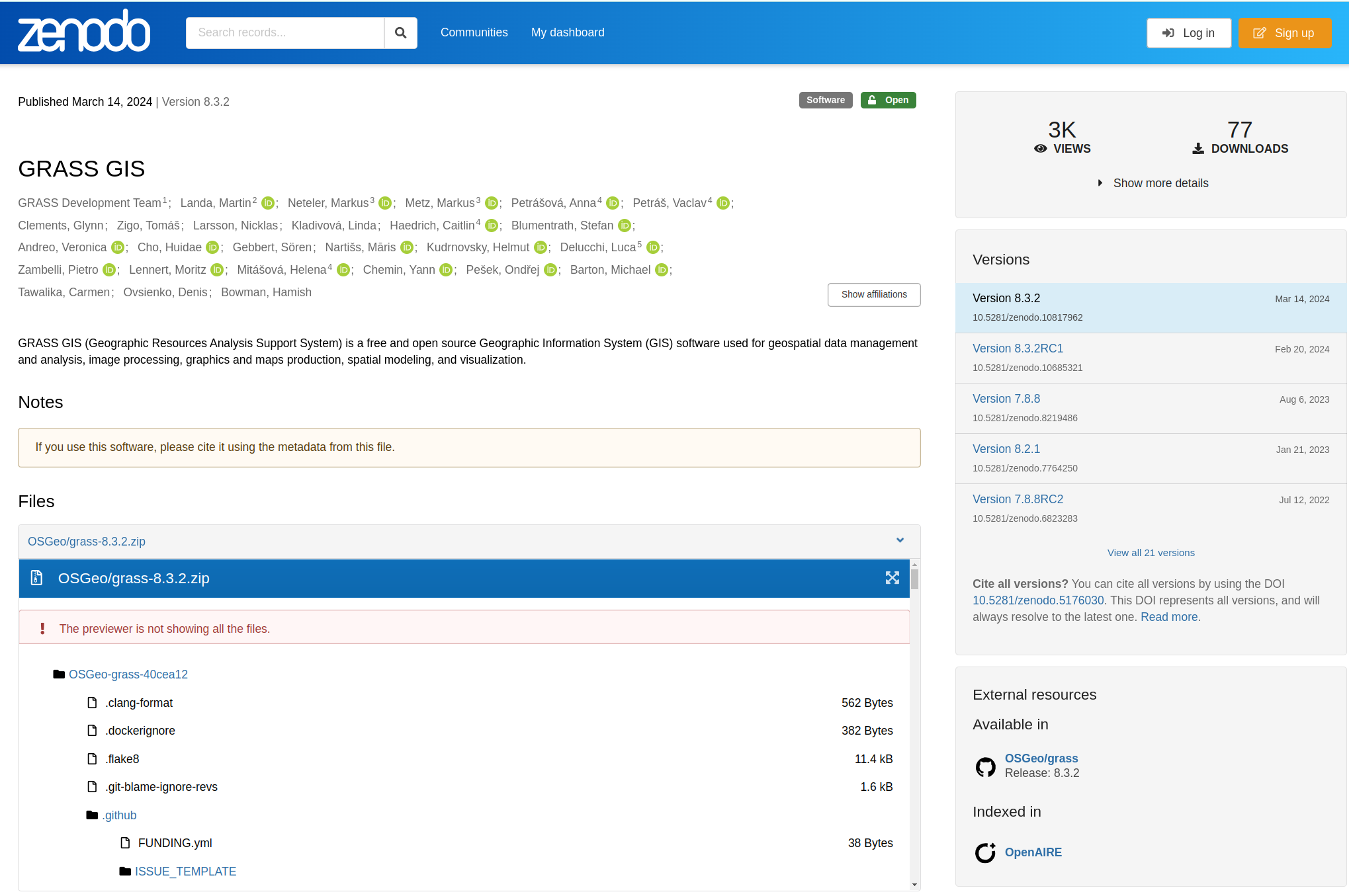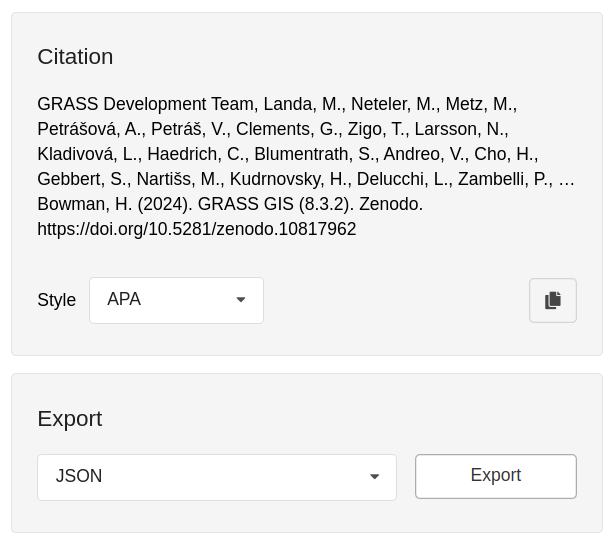Cite GRASS with DOI
Cite GRASS GIS and your geospatial data in scientific works - now with Digital Object Identifiers (DOI)!
The GRASS GIS project celebrated its 40th birthday last year. Over the decades, GRASS GIS has spread around the globe and has enabled generations of researchers to conduct geospatial research in many fields of science.

As a new feature, reflecting the current change towards data-driven science and the paradigms of Open Science (including Open Source) and the FAIR principles (Findable, Accessible, Interoperable, Reusable), GRASS GIS software can now be referenced by Digital Object Identifiers (DOI). DOI are digital persistent identifiers to reference internet resources in scientific or official publications. DOI can be resolved in web browsers similar to web addresses (URL). While an URL will fail once the content is moved to another internet location, DOI will always point to the intended resource, which is a requirement for long term references in scientific works.
DOI allow to reference the whole GRASS GIS project via a concept DOI (https://doi.org/10.5281/zenodo.5176030) or particular software versions like the current GRASS GIS 8.3.2, or older versions going back to GRASS GIS 7.8.6.
In addition, geospatial datasets for GRASS GIS can also be referenced by a DOI. See for example the Natural Earth GRASS dataset at https://doi.org/10.5281/zenodo.3968936.

Since DOI can be interlinked by meta data, connected networks of GRASS GIS related resources can be established, linking code, data and additional information, such as video recordings about GRASS GIS. Well known examples are the GRASS GIS code evolution video, conference recordings or the historic USACERL GRASS GIS commercial from 1987, narrated by William Shatner of Star Trek fame.
These DOI features are based on an underlying integration of the current GRASS GIS code repository on GitHub with the Open Access repository Zenodo, which is also based on Open Source.
A GRASS GIS DOI link will always resolve to a landing page within the Zenodo repository, which is linked to the respective GitHub code repository. The landing pages in Zenodo include a convenient feature for scientific citation: The “Citation” section generates on the fly well formatted citation strings in thousands of citation styles.
Peter Loewe and the GRASS Dev Team